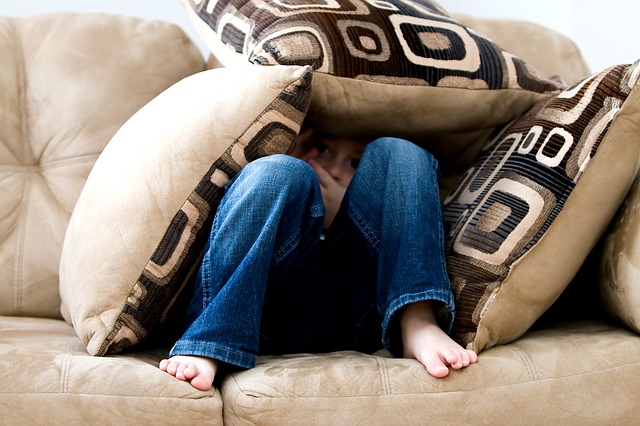Fear is not all bad. If we are truly in danger, fear can save our lives. It protects us from the scary things in life. The problem comes when fear sticks around for far too long. Overstaying its welcome. Keeping us in a state of constant danger, unable to see the coast is now clear. Even though the real danger has since passed, it feels as though it is always there.
Fear is powerful. This is why it is commonly used in parenting. It is the one strong way to keep another person under your control. And for many generations, control has been the ultimate goal. By using punishments, threats, and shame, parents have been able to keep kids on their “best behavior” for years. Using these methods causes a child to make decisions based solely on fear. Fear of losing something, fear of being hurt, fear of ridicule, fear of not being good enough, etc.
So why is that a problem if it produces the desired outcome? Because when fear is that prevalent in a child’s way of being, they don’t just grow out of it. They become adults who are afraid to say no and end up overcommitting themselves. Who can’t give up material things for fear of not having what they need when they need it. Who struggle in relationships because being vulnerable is too risky. Anxious adults who have no real joy in life because they are worried all the time about “what ifs” and “shoulds.”
When those adults have kids, the foundation of fear manifests even more, even if only subconsciously. For example, a boy doesn’t want to eat dinner and his mom has a whole script that is triggered in the background of her mind. Because when she didn’t finish her dinner as a child, she was yelled at or force-fed. That trigger then gets translated into fear (frequently disguised by anger). And suddenly she is worried about her son not getting the nutrition his body needs, or even just the idea of having to feed him later at a less convenient time. And that mom may end up doing to her son exactly the things she hated so much from her own parents.
This becomes a cycle, that will easily pass from generation to generation. But we don’t have to let it continue on any longer. Recognizing our fears is a great first step to creating a different reaction. When our entire way of being is based on fear, it can feel nearly impossible to look within ourselves in order to make any changes. Because it’s scary! Fear becomes larger than life when it is held up inside. But release comes when it is finally expressed.
Because fear often hides behind anger, defensiveness, and blame, it can be challenging to find. So we’ve got to get curious here. One simple way to detect fear is to ask yourself whether something can wait. Can your response wait for you to take a breath or pause for a minute? Can whatever you want your child to learn wait until you are both outside of the heat of the moment? Can a decision be made a little later?
If the answer is no, there’s a good chance your reaction is coming from fear. And like we said, there are situations where fear can be life-saving. That fear may have even been necessary due to your own upbringing, protecting you from punishment. But often, it’s not getting you where you want to go in your life and parenting. You don’t need it in this form anymore. And neither do your kids.

A Letter to Fear
Whoa! Hello fear!
I am definitely feeling you! Thank you for warning me. I see you are working hard to keep me safe. I appreciate you doing so much for me when there’s danger. Right now I’m good though. I’m safe, and I don’t want fear to motivate my parenting. So I’m gonna move forward here with a different emotion.
You are free to go!
Love,
me

0 Comments